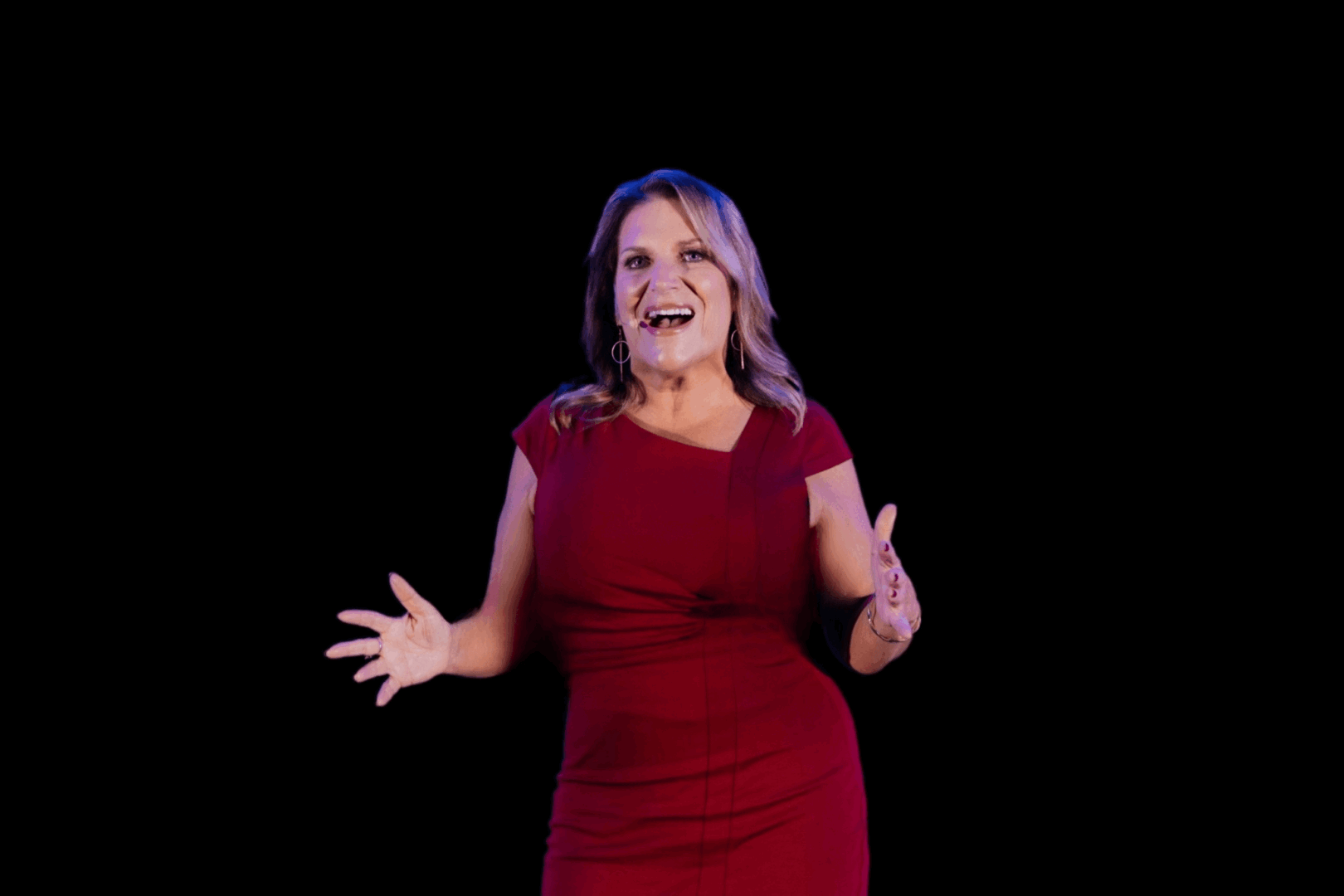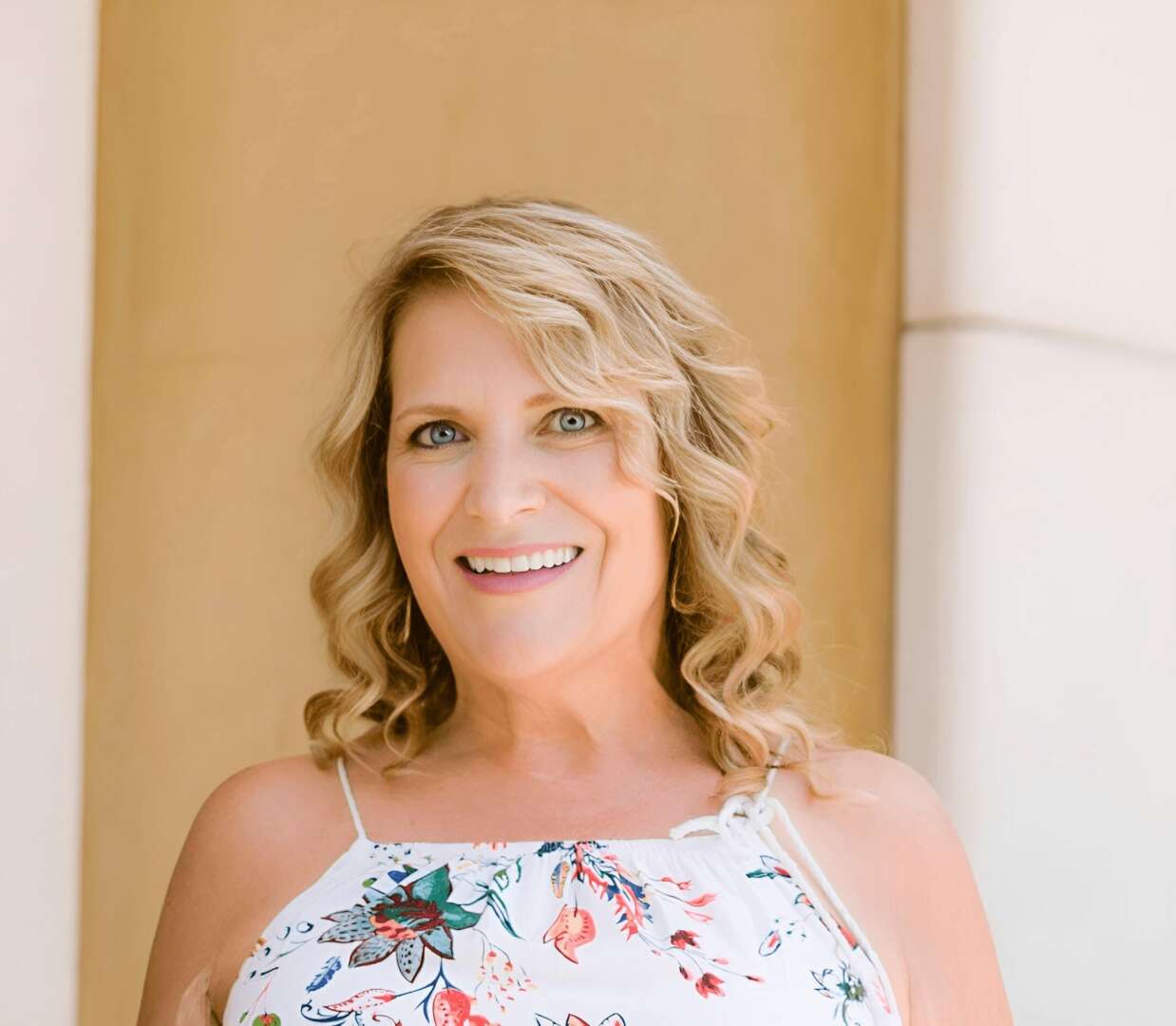Alright – so today we’ve got the honor of introducing you to Kim Sorrelle. We think you’ll enjoy our conversation, we’ve shared it below.
Kim, looking forward to hearing all of your stories today. Let’s jump right into how you came up with the idea?
A few years ago, I was diagnosed with breast cancer. Four months later, my husband of 29 years was diagnosed with pancreatic cancer and passed six weeks after that.
After so many conversations about growing old together, I became a widow at 47 years old. I had to figure out this new life. One thing I needed to figure out was the real meaning of love. I wanted to know I was doing this whole business right.
After looking for the answer in books, on the internet, at churches, and wherever I thought I could find the answer, I kept coming up empty. So, I decided to dedicate a year to figuring out the true meaning of love. (I have a hard time committing to an entree at a restaurant so dedicating a year was a real stretch!) What I learned about love changed my life, rocked my world, and turned my old definition upside down.
I was chased by a motorcycle gang, slept on the ground where snakes and tarantulas roam, got lost on a mile-high mountain, and so much more. Love Is, my award-winning best-seller, tells the sometimes scary, sometimes funny, always enlightening stories leading to revelations about love.
I wrote Love Is, a best-selling book about the crazy adventure leading to so many revelations.

Awesome – so before we get into the rest of our questions, can you briefly introduce yourself to our readers.
I started my first business at 18. Over the years, I have started several other businesses, bought some, and resurrected others, and I love it. I love everything about being an entrepreneur. I’ve sold most of my businesses for six and seven figures. In between it all, I somehow found time to marry, have five children, and run a humanitarian organization. My type A+ dad raised a type A daughter.
Life was humming along. My businesses survived and then thrived during and after the 2008 financial turmoil, and I became an empty nester. Man, I looked forward to that! I love my kids, but losing some of the crazy in the house meant my husband and I could just be together, just us.
Cancer followed by cancer followed by saying, “I love you,” as my husband took his last breath, changed everything. Isn’t it funny how the toughest situations help you shift your priorities?
I spent most of the next few years in Haiti, helping pick up the pieces left by an earthquake that killed 200,000 people.
My days now are filled with helping other entrepreneurs realize their dreams, writing, speaking, and playing with grandchildren. Life is great. It would have been wonderful to grow old with my husband, but since I don’t have that choice, I choose to live fully, laugh joyfully, and love everybody.

Let’s talk about resilience next – do you have a story you can share with us?
The month I was figuring out what Love Keeps No Record of Wrongs meant, a group of pastors from Missouri who had never traveled to Haiti asked if I would be their guide. They were interested in a water project that I had been spearheading.
According to the World Health Organization, 3.4 million people die every year due to water-borne illnesses making contaminated water the number one killer. Cholera, just one of many diseases, has affected over 800,000 Haitians since it was introduced into a main water source in 2010, killing nearly 10,000 people so far. According to the World Bank, only 24% of Haitians in rural areas have access to clean water. So 76% drink contaminated water. Adults miss work, children miss school, babies die. Many people get their drinking water from the same rivers used for bathtubs, washing machines, latrines, waste dumps, livestock watering holes, and swimming pools. So when the pastors asked if I would help, I couldn’t say yes quick enough.
Eight Missourians, two Haitian friends, and I arrived in Arcahaie, an area north of the capital, before noon. Even with some of the nicest resorts resting on its coastline and roots of the most glorious mango trees running deep, clean water, electricity, jobs, and education are as scarce for the 130,000 residents as most everywhere else in the country.
The local church affiliate arranged for our lodging. For the next five days, our Hilton was a small two-room building surrounded by a concrete block wall with chunks of broken glass cemented into its top, ADT Haiti. Each room had four twin-sized beds and not much space for anything else.
After taking a tour of the property, the chief pastor pulled me aside.
“Hey, um, did you see the rooms?”
Since that was about all there was to see, my answer was pretty obvious. But before I spoke, I went through the whole scenario in my head. . . .He is asking me because there are 10 men and me, a woman, again obvious. He thinks that I wouldn’t be comfortable having men in my room, a place that is only used for sleeping since the heat keeps you outside until you are ready to call it a night. So since I have no problem sharing a room, I would say, “It’s OK. I’ll sleep outside.” Then he would say, “No, if anyone should sleep inside, it should be you.” To which I would reply, “I’m happy to share a room.” Then he would say, “Oh, that’s great, there are only so many beds.” And I would smile, and all would be well.
“It’s OK. I’ll sleep outside.”
This was when my head scenario took a sharp left turn.
“Oh, that’s such a relief.”
What?!
“There are men here that would be uncomfortable with a woman in their room.”
Really? Do they sleep naked? Are they afraid that I will attach them in the middle of the night? What would I possibly do in a 10 x 10-foot space between the hours of 10:00 p.m. and 6:00 a.m. in a 110-degree room that would make others uncomfortable? I don’t snore, sing, or talk in my sleep. I wear a tee-shirt and shorts, and they stay on just fine all night. I’m a reasonably skilled sleeper; I have been practicing pretty much every night for my whole life. I lay down, close my eyes, and before I know it, the sun is up, and so am I.
I just stood there contemplating what just happened. I know that women have burnt bras, want equal pay, and can be on the front battle lines, but this kind of liberation is a little extreme. I am all for men opening doors, giving up a seat on a bus, and sending flowers, especially sending flowers. When the check arrives, I offer to pay but am perfectly happy letting a man pick up the tab as their mommas instructed. Who am I to come between a man and his momma.
As the men were picking out their beds, I was working on mine. I looked at the truck. I could sleep in the back of it, but what if it rained? I could sleep in the cab, but the heat would be unbearable. Then, I saw this interesting apparatus; to call it a table would be generous. A piece of plywood was held up by two Haitian-style sawhorses. We brought along an air mattress that would fit OK underneath, on the hard, rocky ground. So there it was my room at the Ritz.
I was more miffed that the eight unchivalrous American men assumed that they were entitled to sleep under a roof while the Haitians slept outside than sleeping outside myself. Not offered a choice, Patrick and Robinson, my gallant friends from Port au Prince, were not about to let me sleep outside alone, so they placed cots under the shanty’s overhang.
As the sun descended to its own plywood cover in the sky, the eleven of us sat on homemade wooden chairs and swapped stories. Mostly it was the Missourian’s stories. Stories about bull-running in Spain, shark diving in South Africa, biking across the Sahara, or some manly things like that. I wasn’t really paying attention. My mind was on my own inevitable vacation destination.
“Hey, Kim.”
It was him again, the one who would be king.
“Got a sec?”
Seriously? No, I am swamped right now thinking of all of the things that are bound to crawl on me in the night like snakes and tarantulas, and figuring out if my travel insurance will pay to have me airlifted out of the middle of nowhere to the nearest hospital with the correct antivenom to keep me alive, or if I would have to channel Rooster Cogburn and suck it out.
“Sure.”
“Hey, um, did you see the shower?”
Did I see the bedrooms? Did I see the shower? Buddy, what else is there to see? The only thing you haven’t mentioned on these minuscule grounds is the latrine. Without a doubt, that was next.
“Yep.”
The ‘shower’ was a four-foot-tall ‘L’ shaped wall in front of a 55-gallon drum full of water. To ‘take a shower,’ you fill a five-gallon bucket, then use a flimsy eight-ounce plastic cup to pour that water over your very sweaty, exceedingly dusty, likely smelly body, lather up, and rinse.
“I need you to do me a favor.” Love, Kim, love. “I need you to shower last. We don’t want the guys to be nervous that you might walk in on them.”
There are so many things wrong with what he said. First, a favor? You can say no to a favor; I knew that I couldn’t say no to his request. Walk-in on them? How is that even possible? The wall is as tall as my 8-year-old grandson. I can see over the top of his head. Even in the pitch darkness, I would know there was a figure in the ‘shower’ on my approach and not have to walk around the corner to confirm my suspicions. Plus, I can count to ten. If one of them was missing, I might be able to do the math and know the missing guy is in the ‘shower’ since there is nowhere else to be except the latrine, and I knew that one was coming.
“Oh, and we will let you know when you are free to use the latrine.”
Thank you, your majesty. How gracious and kind of you to let me know when a lowly woman, graced by your radiant presence, could sit on the same throne as thy. Love is patient and kind and whatever.
“No problem.”
By the time I was done showering, everyone was either dreaming or snoring or both.
I ducked under the plywood onto the previously inflated air mattress and laid down. I then did what I did many times during that night and the nights to follow; I prayed. “Lord, please don’t let anything with or without legs crawl on or anywhere near me.”
By the end of hour one, my air mattress became an airless mattress, and I could feel every stone and stick underneath the deflated plastic. In hour one and continuing through hour three, I was serenaded by the delightful chorus of barking dogs and honking horns.
Hour four was relatively quiet. I drifted off to sleep, prepared to not jerk if I felt anything slithering, crawling, or landing.
Then came hour five. Voodoo drums started at some distance. Not exactly the calming roll of ocean waves, the soothing sound of light rain, or the gentle chirping of crickets, but the rhythmic percussion was surprisingly relaxing.
Just as I started to doze off to the pa rum pum pum pum, I heard the most gut-wrenching sound, one that I had never heard before but knew exactly what it was. A dog was crying.
I have heard yelps, barks, whimpers, and howls of all kinds. I’ve witnessed dogs being kicked, stepped on, dropped, run over, and heard them voice their pain. This, however, was nothing remotely close to any of that. This bawling, a loud, long lament, an unearthly wail, made my heart sob. I wept quietly, prayerfully. Lord! Please help that dog. It seemed like an hour but was hopefully only minutes before the ungodly bellowing stopped. In rural areas of Haiti, hearing Voodoo drums at night is not uncommon. Skinning a dog as part of a ritual, hopefully, much less common.
The drumming eventually subsided. I was able to one-eye-open nap again. Deliverance came with the dawn.
After a day installing water filters in one-room shacks where families of four or more rested their heads at night, my private room with plywood covering my deflated mattress seemed like the Taj Mahal. I had nothing to complain about.
I got used to the routine of the night; enjoy the blow-up bed for a good part of an hour, then try to think of the rocks as a form of acupuncture, brace myself for the crying that proved certain to follow the beginning of the drumming, and pray over and over again, “Lord, please don’t let anything crawl on me.”
That night and the others that followed were tantamount to the first except for what happened the second night and two nights later.
Sometime between the drums ending and the sun peaking, my floating slumber came to an abrupt end when I felt something on my leg. Sleeping on my back, the best way to sleep if you have to get up quickly to run, I was afraid to open my eyes. What if it’s a snake? Do I jump up and risk a deadly bite? Do I pray that it is just there for a short visit and will get slithering on soon? What about a tarantula? I have seen many, always from a distance, if they were alive. Dead ones I am willing to get closer to but not by very much. I’ve taken kids on mission trips tarantula hunting at night with flashlights, feigning bravery, secretly hoping that they were all attending a family reunion in a town miles away. I dug down deep, found the last speck of courage hiding behind my spleen, and partially opened my right eye. I thought that if I only opened one somehow, whatever I saw would be half as scary. What if it was a chupacabra? I hadn’t thought about that as a possibility until now. I know they are mythical, but so is Big Foot, and how many pictures of him are out there? I imagined a king-size hairless Sphynx cat, the color of mud, fangs of a baboon, claws of a giant armadillo, lemur eyes, and spines protruding down its back. Did I really want to know? I slowly lifted my head. Telling myself not to scream no matter what or how big it was, I opened my eye a bit wider, waiting for a monster to attach. Beady red eyes stared back at me while its sharp talons gripped my thigh. Then I opened both eyes wide. Was I dreaming? No. The terrifying beast, the one that got my heart pulsing 1200 beats per minute like a pygmy shrew, raised my blood pressure well over stroke level, expanded my pupils to the size of vinyl records, and had water raining out of every pore, causing a small flood on my deflated mattress was a chicken. A dang chicken. On my leg. I shooed the clucker away, knowing adrenaline would not let me sleep again.
Then two nights later, it happened again. Doing precisely the same things, squinting one eye, gradually bending my neck, imagining the worst, knowing I couldn’t be that lucky twice, muscles tightened, ready to fend off an attack, and there it was again—the chicken.
When dinner was served that night, I was comforted knowing there wouldn’t be a three-peat. Sorry old friend.
I really enjoyed getting to know the men of Missouri and chalking the whole thing off as a cultural difference. I clearly have different presumptions when it comes to the behavior of the sexes. I like a little help with my luggage and happy for an open door. Nothing crazy like throwing a trenchcoat over a puddle so I can cross the street, but a cot in a building would be nice.
So there it is, a record of wrong, something that love doesn’t keep.
Love doesn’t keep a record of wrongs, but that doesn’t wash away our memories. We just look at the memories differently. Rather than letting bitterness takeover, harboring angry feelings, wishing great bodily harm on someone you feel wronged by, the memory, the story, changes into just that, a memory, a story. Not keeping records of wrongs means the story no longer carries the emotion that it once did. It’s no longer those dang Missourians that let me, made me, sleep outside with the chickens. Now it’s just a funny story, a time in life that I will never forget, a time that I survived. I am stronger, braver, and smarter than I would be without experiencing life under plywood. I have more compassion for people who sleep regularly outside. Shoot, I can now sleep anywhere and know that I will be just fine. I really should be grateful to those pastors for making me live through those five nights in Arcahaie. They likely didn’t know at the time what they were doing, but that doesn’t matter. Like with so many things in life, it is not what happens but our reaction to the happening. The narrative has changed, changed for the good and for good. Before figuring out what love that doesn’t keep a record of wrongs means, the feelings that I had only hurt me. Those pastors never think about that time in Haiti as I do. Hopefully, their memory of the trip centers around the water filters that we installed and families that welcomed us into their homes. The project launched that short week has continued, bringing clean water, water that does not make kids sick, into thousands of homes.

Is there a particular goal or mission driving your creative journey?
Yes! I love helping people grow, chase their dreams, and expand their hearts. I am helping entrepreneurs realize that working more hours does not necessarily mean more income. Recognizing what is important in life, balance can happen, and love can grow.
I also help them create higher ticket offerings under the belief that people who pay pay attention. I see lives transform, and changes happen because of a larger investment. Plus, the biggest bonus to me, the more you have the more you can give. As the director of a humanitarian organization working in some of the toughest places in the world, I know how giftings and gifts can be used in such a way that they multiply the impact.
I truly love people and do what I can to help make the world a better place.
Contact Info:
- Website: https://www.kimsorrelle.com
- Instagram: https://www.instagram.com/kimsorrelle/?hl=en
- Facebook: https://www.facebook.com/ksorrelle
- Linkedin: https://www.linkedin.com/in/kim-langlois-sorrelle-11079523/
- Youtube: https://www.youtube.com/@ksorrelle



Image Credits
616 Photography


